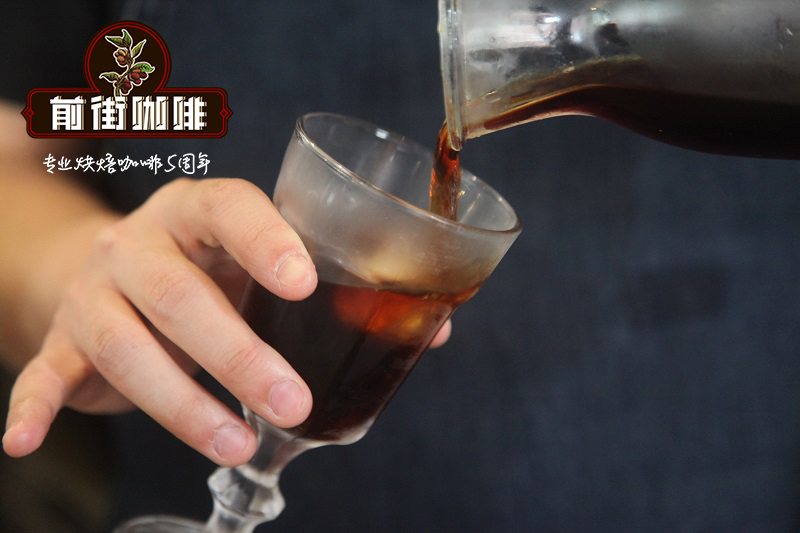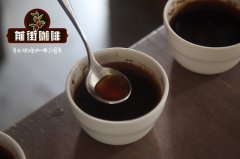What are the characteristics of Indian style-stained coffee? Is the Indian Malaba coffee good?

Professional coffee knowledge exchange More coffee bean information Please pay attention to coffee workshop (Weixin Official Accounts cafe_style)
In the early days, Indian coffee was transported by sea from the Malabar coast to Europe, often six months after it arrived in Europe. During the long sea voyage, these beans were influenced by the sea breeze and seasonal wind, and gradually changed in flavor characteristics and color, which led to the birth of today's Indian wind maraba fine beans.
India's wind maraba coffee is one of the world's most famous coffee beans. Wind-stained coffee beans are also known as "monsoon coffee beans", named after their English name "Monsoon". His approach is complex and strange, mainly through the interaction between the earth and the sea breeze to produce complex, unique flavor. The name "air-soaked maraba" refers to the unique coffee product of its air-soaked beans processed in maraba on the west coast of india, where coffee is subjected to a cumbersome and rigorous air-soaked treatment before being shipped around the world.
Malaba coffee needs to be made from sun-dried beans. All the factories dealing with Malaba coffee face west to meet the salty and humid monsoon blowing from the southwest sea. Coffee beans are laid flat in the wind stain field. The windows are fully open. After the wind stains to a certain extent, they are re-entered into bags. However, because the beans will expand a lot during the process, the coffee beans cannot be filled too much, and the coffee bags cannot be stacked too tightly to avoid mildew due to lack of ventilation. Coffee beans should be poured out from time to time and the linen bags should be replaced. To prevent the breeding of mold, it can be said that it is a very time-consuming project. The air-curing period is about 12 to 16 weeks. After ripening, the beans are fumigated to drive away weevils. Finally, the beans are sifted manually to remove the failed beans that have not turned golden. After three to four months of air-soaking, green coffee beans expand by one to two times their volume and decrease in weight and density.
Although the beans are large and fat, they are soft beans that are strong on the outside and dry on the inside. This is a change that has occurred after months of weathering. Coffee beans long-term exposure to the humid monsoon for several weeks, not only make the beans yellow, the acidity of the coffee itself also reduced a lot, taste very special. Indian maraba coffee beans can be drunk as a single item, but they are also suitable for blending coffee beans.
How should Indian maraba coffee be roasted?
Because this coffee belongs to the general density of beans, Qianjie Coffee is recommended to roast medium fire steadily climb, turn yellow point in 4 minutes and 50 seconds, then reduce the fire open the damper into the Mena reaction, open the damper when the explosion, maintain the fire, temperature about 184.4℃, 2 minutes and 30 seconds after the explosion beans
Indian Monsoon Malabar AA
Country: India
■ Production area: Maraba
■ Altitude: 1000 - 1500 m
■ Treatment method: wind stain treatment
■ Rating: AA
■ Breed: Arabica
■ Flavor description: cream, wheat, stone fruit, brown sugar, fat texture thick
Front Street Coffee recommends brewing Indian monsoon maraba coffee by hand
Abrasion: 4 (Fuji R440)
Water temperature: 83°C
kono filter cup, 17 grams of powder, water temperature 83 degrees, grind 4, water powder ratio close to 1:13
Method: 30 grams of water stewed, stewed for 30s
Stage: water injection to 120g water cut off, slightly larger water flow injection to 221g
30-120-221, total extraction time 1:50-2 minutes
Qianjie Coffee: Guangzhou's baking shop, small store but a variety of beans, can find a variety of famous beans, but also provide online store services. https://shop104210103.taobao.com
Important Notice :
前街咖啡 FrontStreet Coffee has moved to new addredd:
FrontStreet Coffee Address: 315,Donghua East Road,GuangZhou
Tel:020 38364473
- Prev

How did the Indian wind stain treatment come from? What are the characteristics of Malaba coffee?
Professional coffee knowledge exchange more coffee bean information Please follow the coffee workshop (Wechat official account cafe_style) it is said that a long time ago, when raw coffee beans were shipped from India to Europe, changes were caused by high temperatures and moisture in the Indian Ocean, and this is where "wind stains" came from. In addition to the expansion and enlargement of the size of the raw beans after wind-soaked, the color of the raw beans is also changed from green to green.
- Next

What kind of coffee do you have in India? How to drink Indian Malaba coffee by hand?
Professional coffee knowledge exchange more coffee bean information Please follow the coffee workshop (Wechat official account cafe_style) in the early years, Indian coffee was transported by sea from the coast of Malaba to Europe, which often took about six months to arrive in Europe. In the long process of shipping, under the influence of sea breeze and monsoon, these coffee beans gradually develop their flavor and color.
Related
- Beginners will see the "Coffee pull flower" guide!
- What is the difference between ice blog purified milk and ordinary milk coffee?
- Why is the Philippines the largest producer of crops in Liberia?
- For coffee extraction, should the fine powder be retained?
- How does extracted espresso fill pressed powder? How much strength does it take to press the powder?
- How to make jasmine cold extract coffee? Is the jasmine + latte good?
- Will this little toy really make the coffee taste better? How does Lily Drip affect coffee extraction?
- Will the action of slapping the filter cup also affect coffee extraction?
- What's the difference between powder-to-water ratio and powder-to-liquid ratio?
- What is the Ethiopian local species? What does it have to do with Heirloom native species?

